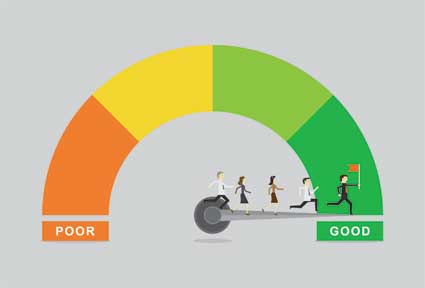Mortgage Brokers: Salary Figures
While a professional's estimated salary figures will vary both from individual to individual and from geographical locale to locale, on the average, it is estimated that mortgage bankers earn in the neighborhood of $100,000 per year whereas brokers make closer to $114,000.
Note: Though, on average, brokers tend to earn more, the type of work they do (matching lenders with borrowers) carries with it a higher level of associated risk.
Mortgage Brokers: Skill Sets
For those however who desire to learn more about specific attributes required of the profession, we will now take a look at the most beneficial characteristics and abilities to have as a mortgage banker-broker:
- Business or financial educational background and training.
- Strong acumen for numbers.
- Strengths as a salesperson or prospector.
- Competency working with computers.
- Understanding of regulatory affairs affecting real estate and loan commerce.
- People Skills.
- Analytical Skills.
- Resourcefulness.
- Scruples as opposed to being unscrupulous and solely interested in making money at any cost to the borrower.
- Energy, verve to work long hours.
Additionally, lenders are becoming encouraged to educate clients so that they can make a smart, well-educated mortgage decision; it is helpful for them to also be:
- Good listeners.
- Detailed communicators.
And lastly, perhaps two of the most critical skills a mortgage banker-broker needs in order to be successful are those of:
- Formidable lender network. Networks are important because relationships are the key to a banker-broker's success. More true for brokers than bankers, well established lender connections are brokers' assurance that the loan packages they submit will be elevated to higher priority standings.
- Lightning-fast, razor-sharp evaluation abilities. Evaluation abilities are important because both bankers and brokers base their success on being able to pick good credit risks and, as such, they need to be able decipher the real net income of the loan candidate without having to put in an excessive amount of time. The idea is for Brokers to come to the point where, based upon preliminary financial information, they can assess loan candidates from the get-go to decide whether to accept them as clients or to turn them down.
Mortgage Bankers and Brokers: Job Forecast
While it should come as no surprise, the mortgage industry as of late has suffered some serious setbacks. Due in part to the sub-prime lending market and collapse of the two major lending bodies, Fannie Mae and Freddie Mac, and those claiming to be professional Brokers whose sole interest was to make money while unscrupulously gouging unknowing borrowers.
How all the hoopla will play out is anyone's guess (and many are taking stabs at it). Yet, what can be said is that the overall mortgage lending environment will never quite be the same.
As stated by Doug Duncan, Chief Economist for the Mortgage Bankers Association, the national association representing the retail financing industry, "Continued consolidation is to be expected in the industry. We have not yet seen fully the impact of the credit shock to the U.S. and world economies, and the severity of that impact and how we move forword will depend on how long it takes for the markets to return to normal functioning."
Yet, for those interested in getting into the field, this current state of the industry overview should not necessarily impede anyone's decision.
Rather, as remarked by Bank of America spokeswoman Julie Davis, "In a cyclical business like mortgages, as the market tightens, there always has been more competition for excellent lending officers."
Real Estate Financial Industry: Conclusion
In spite of the steady stream of up and down movements within the industry, it is important that aspiring mortgage Brokers remain focused on what is important: that of staying true to their course to become knowledgeable in their chosen field and continue working at being the best they can be.
For those in the field, the following changes are anticipated: enforcement of more stringent lending regulations, increased scrutiny of the mortgage lending industry by government agencies, and pre-conceived distrust by individual borrowers of mortgage loan bankers and brokers.
Additionally, Brokers are being coached (and monitored) to ensure mortgage loans are not made to those without the documented means of repayment. Meaning, Brokers need to ensure that borrowers have the credit and means (such as earnings and savings) to make regular payments on their mortgages as opposed to going into a foreclosure situation.
Yet, despite some of the industry's woes, favorably speaking, in the coming year, it is forecasted that mortgage sales will increase by 5% in 2016 on account of the people who plan to buy a home in that year.
Hence, there are reasons to be optimistic that the mortgage industry has better days ahead.
In light of such optimism, it remains clear that professionally trained lenders will be needed; specifically those who understand the environment and come to regard each client's situation as if it were a unique scenario with its own customized lending solution.
This then will allow mortgage Brokers to approach each transaction anew, incorporating newly minted practices and policies, for example, a duty of care and more intensive evaluations of borrowers' repayment abilities.

























